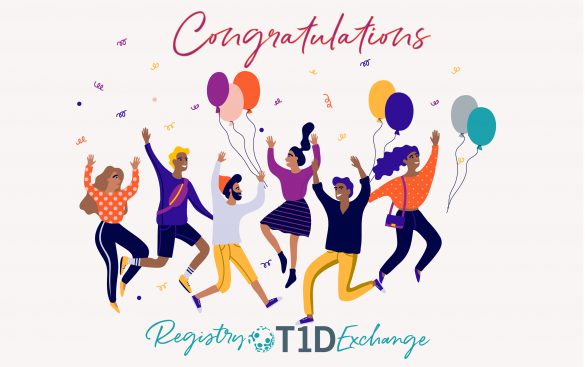ADCES 2023: Improving Patient Care & Outcomes in Type 1 Diabetes
This year’s Association of Diabetes Care & Education Specialists (ADCES) conference was held in Houston, TX on August 4 –…
Measuring a Year – the First Anniversary of the T1D Exchange Registry
June marks a milestone of great importance and excitement for T1D Exchange – it’s been exactly one year since the T1D Exchange Registry launched to the public, bringing together a large number of people with type 1 diabetes from around the country.
Real World Evidence: What It Means and Why it Matters for Type 1 Diabetes
People living with type 1 diabetes learn, in many ways, to be research scientists and investigators of their own lives. We learn how slices of pizza or a plate of spaghetti affects our blood sugar, and how to mediate those effects with multiple boluses of insulin or a long-lasting dose. We discover precisely how much sugar we need to stay steady during an intense workout session.
In doing so, we begin to learn about the meaning and applications of real-world data and evidence. Modern medical and scientific research takes several different approaches to investigation, from randomized, controlled clinical trials to longitudinal, observational studies that examine how people live with various conditions and therapies in the real world.










